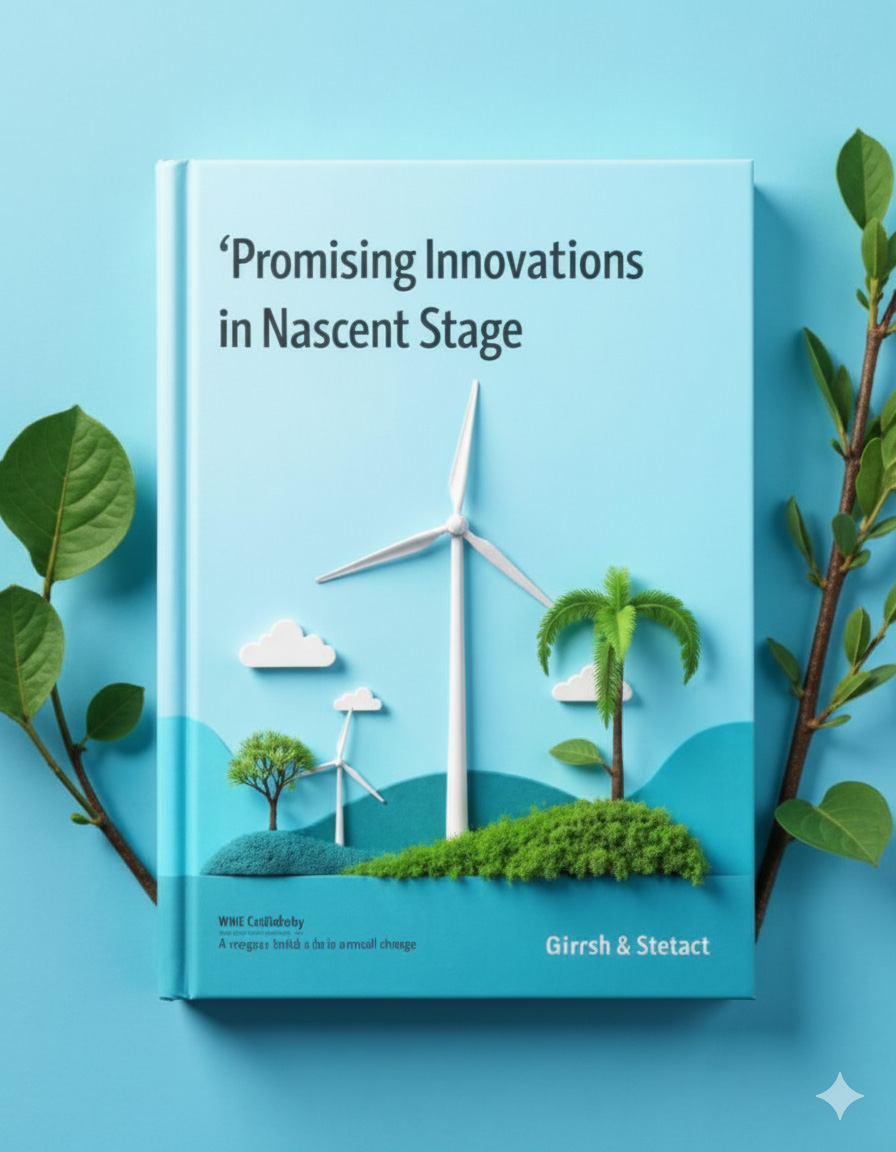
Download Your Free PDF
Please fill in your details to access the PDF
Thank You!
Your PDF is opening now. If it doesn't open automatically, click the button below.
The eCarbon Card Blueprint
Digital Solutions for Carbon Accountability — India as a Model
The 8 Billion People Question: How Do WE Hit Net Zero?
Get Your Copy Download Audio MP3 📘 Download Free eCarbon Chapter

A Grassroots Movement for Climate Action
After decades of policy debates, the key to solving the climate crisis can no longer be only a top-down mandate—it has to be a grassroots movement.
As the world's third-largest CO₂ emitter and one of the most climate-vulnerable nations, India is uniquely positioned to prove that a massive, people-centric climate solution is possible.

Power to the Individual
Leveraging $100M+ in innovation impact, Dr. Wahal shows that the most effective solution is to give the power of change directly to the individual.
Its leaders have already taken bold steps. Now, the world needs a scalable model for transforming policy into action across its entire population of 8+ billion.
The eCarbon Card: Makes Every Citizen an Agent of Change
A digital framework that makes carbon responsibility as simple and integrated as checking your bank balance.
Democratize Carbon Responsibility
Transform the climate fight by making every person's choices transparent and trackable.
Integrate Accountability
Use technology (AI/ML, Blockchain) to embed carbon tracking directly into daily financial transactions.
Bridge the Gap
Translate high-level policy commitments into effective, measurable action at individual levels.
Create a Global Model
Lay out a scalable strategy using India's advanced digital infrastructure as the test case.
From Screen to High Street: A Solution Built on Impact
Dr. Wahal’s career has been spent developing and commercializing groundbreaking technologies-from advanced materials and green chemistry to new technology platforms-that deliver massive financial and environmental value.
The eCarbon Card makes every choice matter. Every person empowered. Every day.

Get Your Copy Today
Download. Track. Crush Carbon — one purchase at a time.
Frequently Asked Questions
For individuals, initially through voluntary, gamified participation—rewarding low-carbon choices. Over time, policy integration and AI-driven audits ensure accountability without coercion. For carbon intensive heavy industries – steel, cement, coal-based power stations, petrochemicals etc., it will be gradually made mandatory.
An independent, blockchain-based consortium (aligned with UNFCCC goals) under a multi-stakeholder board ensuring transparency, fairness, and data integrity. For example, Carbon Authority of India- CAI (as proposed in the book)
Users may earn carbon credits which are redeemable for discounts on green products, renewable energy, travel, or even tax rebates in partner economies.
AI safeguards flag anomalies, while positive incentives and community monitoring promote trust and accountability over punishment.
By spawning new roles in creating centralized carbon intensity database based on carbon calculation engine, installation of smart meters, sensors and other IoT devices to monitor and track live carbon emissions – all leading to carbon accounting, app development, ESG consulting, data analytics, and green certification—potentially generating over a million jobs globally.
A governance model where citizens use digital platforms to vote on carbon policies—making climate governance participatory and transparent.
They gain access to global carbon markets where carbon credits (surpluses) can be traded for Green Income or Economic Capital, green technology transfers, and climate financing—accelerating equitable development.
Through tokenized carbon credits on the eCarbon platform—allowing everyone to invest, trade, or offset emissions personally.
An AI-powered virtual model of your lifestyle that simulates the impact of choices and suggests carbon-optimized alternatives.
Only with consent. Data comes from opt-in integrations (like banking or utilities), encrypted and fully user-controlled.
You do. Data is stored on decentralized ledgers i.e. blockchains, anonymized for analytics, and always deletable—compliant with GDPR-style standards (General Data Protection Regulation as enacted by the European Union (EU) in 2018—these standards are widely considered the global benchmark for personal data protection).
A dynamic, AI-calculated allowance reflecting your geography, income, and energy access—ensuring fairness across social and regional lines.
Your eCarbon dashboard integrates all three—rewarding low-carbon meals, EV commutes, and renewable energy use in real time.
Through open-access dashboards, independent audits, and equitable policies that connect transparency, fairness, and climate justice. CAI will play a key role in this
Upcoming Books

“Strategies for Decarbonizing India by 2050: Potential Pathways and Enabling Technological Innovations to get to Net Zero”
-in works.

“Promising Innovations in Nascent Stage with Disproportionate Impact on Decarbonization”
-in works.
Join Our Beta Group
Sign up to get early access and pioneer benefits.
Join the Waitlist
Be the first to know when we launch!
Sign up now to get early access, exclusive updates, and special pre-launch offers.
✅ No spam — only exciting updates and early access alerts!
